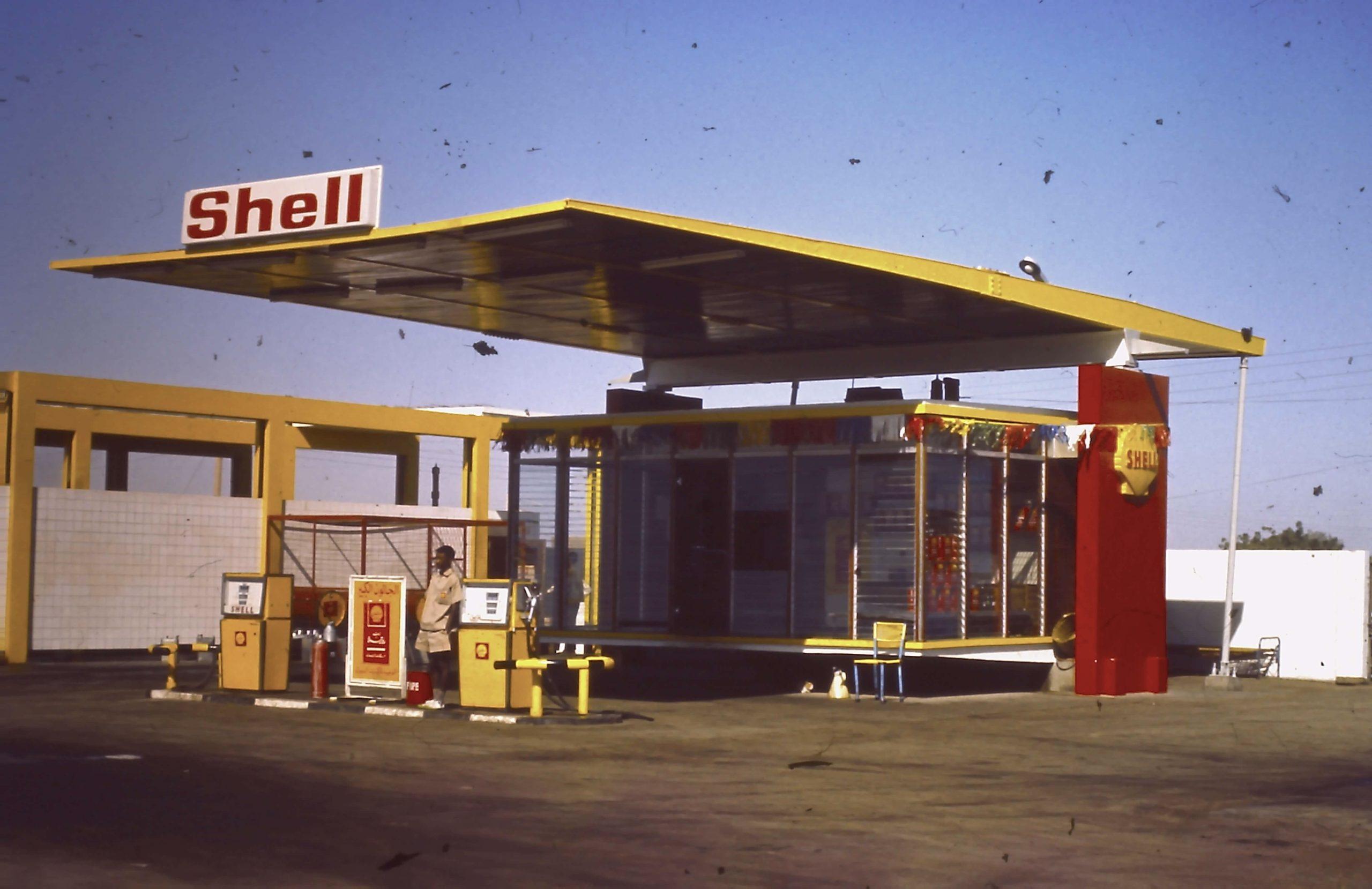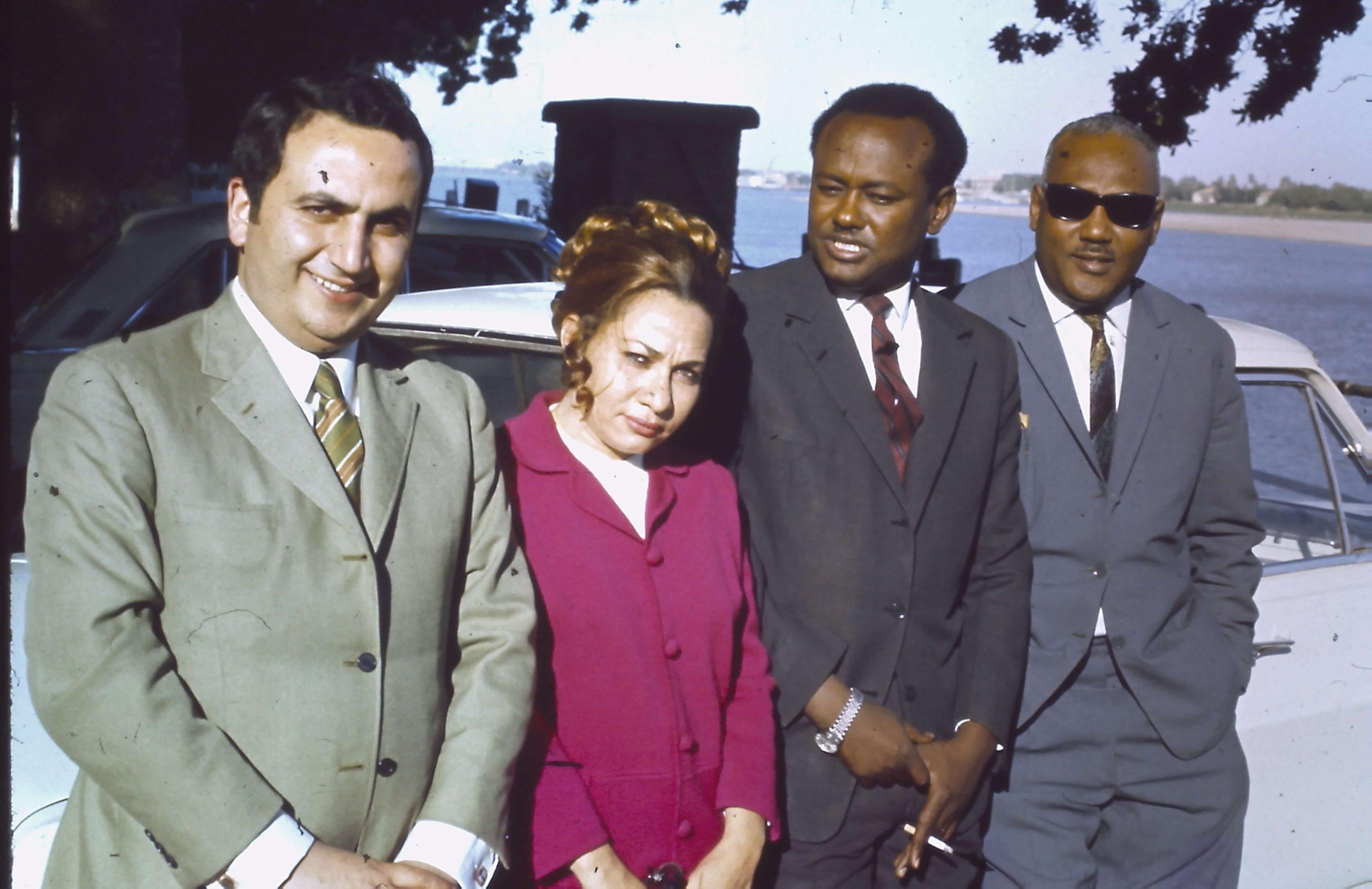Having familiarized myself and the Shell account team at HIMA with the business environment and the requirements of our Shell clients in Dubai, the Northern Emirates, Abu Dhabi and Oman, Ferdie Farwaji asked me to get ready to visit Sudan. As before, his brief was very thorough, covering the country, its political environment, the climate, the hotels, the food, their business, and the people. However, what stuck with me were the numerous references made to the advertising manager in Khartoum, Abdel Rahman Swar El Dahab.
Ferdie asked me to pass by his office on my way to the airport, as he wanted me to carry a small handbag for Shell Sudan’s general manager, a Dutchman by the name of Jack Von Buren. The small bag turned out to be an ice bag packed with a selection of European cheeses, since such food was not available in the country. He also advised me to buy a couple of Rothmans cigarette cartons from the airport duty free shop to present to my hosts.
I flew with MEA via Jeddah, where it stopped for 45 minutes to allow Saudi-bound passengers to disembark. We then continued the flight to Khartoum, where we landed in the early evening. The plane was packed with Sudanese passengers flying back from Europe via Beirut. After clearing immigration and customs, I found Sayyed, the Shell company driver, waiting with a sign carrying the old Shell logo, as they were still using it in Sudan. Sayyed was as talkative as Al Sheeba in Abu Dhabi and, like all Sudanese, he never stopped cracking jokes, giggling, and laughing at his own punchlines. This made it difficult for me to hear the final twist in the story and to understand what made Sayyed laugh.
The cars at the airport parking lot and all the way to the hotel were mostly Austin, Morris, Bedford, or Vauxhalls. Not even one looked to be that year’s model. They were all shabby and dusty. The roads were wide and surrounded on both sides by towering banyan trees and punctuated by old colonial villas. After dusk, the tropical landscape seemed like an oil painting showcasing the fading glories of the city at the convergence of the two Niles.
The Palace Hotel was the optimization of this picture, with its two- story British looking façade, the spacious marble-floored lobby, the big chandeliers above the heads of the reception staff, and the concierge with a spotless clean white galabia. He wore a thick red belt round his belly and a Nubian turban. The receptionist was a grey-haired Sudanese man in his early sixties, who wore a shiny black suit and a black bowtie, while at the extreme tip of his nose rested his thick spectacles. He seemed to be happy with his English, so the more I spoke to him in my Lebanese dialect, the more responses I got in English. Before handing me my bulky room keys, which he picked up from the pigeonhole that was part of the huge matrix hanging behind him, he asked if I had brought a parcel for Jack Von Buren. As I picked up the ice bag, I had insisted Sayyed and the bell-captain leave me to carry, he took it and handed it to a waiting man in a khaki shirt, shorts and bomber pilot cap carrying a shiny brass Shell emblem on the front.
My room on the second floor was accessible via the palatial staircase in the middle of the lobby. It had a standard wooden bed, a closet, two side lamp stands with drawers on each side of the bed, and a dressing table. After a few minutes, I was in bed and almost immediately went to sleep.
I had breakfast on the spacious deck overlooking the Nile, and it was then that I realized the presence of the many black crows that constantly hovered overhead throughout my stay at the Palace Hotel. The young bell captain came looking for me to announce the arrival of Sayyed, my driver.
On route to Shell, I noticed one of their service stations looked different to all the other Shell stations I had ever seen. It carried an African design, and its office and lubricants shop were elevated, as if to keep flood water and animals away. The streets were crowded with morning activity and what struck me were the many women who squatted on the pavements with woven baskets loaded with fruits and vegetables that they were selling.
The Shell Company of the Sudan was located at the edge of what seemed to be a street of European embassies. It was in a three-story building with uniformed employees at the entrance, who guided expected visitors to a rusty old-caged elevator. An old man, the operator, sat on a wooden stool inside. He asked every entrant what floor they were heading to and announced when the floor was reached before he even pulled the heavy metal sliding door to let people in and out. As I stepped out on the second floor, I was greeted by a smiling red-haired lady in a European dress and an outstretched welcoming hand. Marcelle Chaghouri introduced herself as the secretary of the marketing team and marched in front of me to the office of Abdel Rahman Swar El Dahab, the advertising manager of Shell Sudan and my primary contact on this visit.
Swar, as he asked me to call him, was my introduction to the always smiling, very kind and ever polite Sudanese personality. He welcomed me as if we’d known each other for many years. Laughingly, he enquired about my first encounter with the Dubai general manager, which he seemed to have heard about from Ferdie Farwaji. Still laughing, he enquired if I had learned to drive since then and automatically switched to a long and comprehensive briefing session about Sudan’s history, the business environment, the lubricants market, the company and all the people he had planned for me to meet.
Swar’s people brief started with Marcelle, whom he introduced as “your countrywoman”. He explained that she was “Shamiyah”, meaning that she had come from Damascus (Al Sham), which is the name that the Sudanese use to refer to all people from Syria and Lebanon who have moved to live in their country. Marcelle’s father was a well-known merchant of fabrics with a large shop in Khartoum, which was very popular amongst women since it was their first choice for sari fabrics. Marcelle had graduated from a nun’s school and was fluent in English and French.
Hassan Issa, who joined us for lunch, was the second personality on Swar’s introduction list. Hassan, Shell Sudan’s marketing manager, was the serious thinker, the main driver of the business who deserved the title of general manager, which he never dreamed of getting, since he was not a European. This fact very much frustrated Hassan and put a permanent frown on his face and a crease between his two brows. However, over lunch on the terrace of my hotel, I discovered that Hassan Issa was a seasoned marketing professional from whom I learned a great deal over the years. Hassan was an integral part of my first visit, as the briefing sessions in his office dwelled on Sudan’s car population, the car and truck makes that were most popular, and the reasons that was so. He had been very active in negotiating the deals with their agents in Sudan and even with certain manufacturers. All to persuade them to endorse the various grades of Shell lubricants.
Hassan also initiated me into the geography of his vast country and the various tribes of the South and the North, as well as their differences, which he felt, one day, might turn into an explosive political volcano that could be detrimental to the business. Hassan was an expert on the politics of the Arab world, having travelled to the Palestinian refugee camps in Lebanon, Syria, and Jordan, as well as to Algeria to learn, firsthand, about the challenges of the Arab nation. Then we were finally introduced to the general manager, a larger-than-life Dutch giant who gave me the impression that he had reached his current size because of the milk he had drunk in Holland during his childhood.
Von Buren had been with Shell since graduation, but Sudan was his first overseas posting and he seemed to be enjoying the colonial lifestyle. Jack thanked me for the cheese I had brought and smilingly hinted that they would keep creating reasons for me to come back every time their supply of cheese dwindled. He enquired about the activities that HIMA was conducting in Lebanon and the lower Gulf on behalf of Shell, insisting that we (the agency) should not settle on the briefs of his own marketing officers, but that we needed to work on them to be more progressive in their plans. I instantly discovered how fast and shrewd Swar and Hassan Issa were, since their briefs were much more comprehensive than anything I had collected in Dubai, Abu Dhabi, or Muscat.

